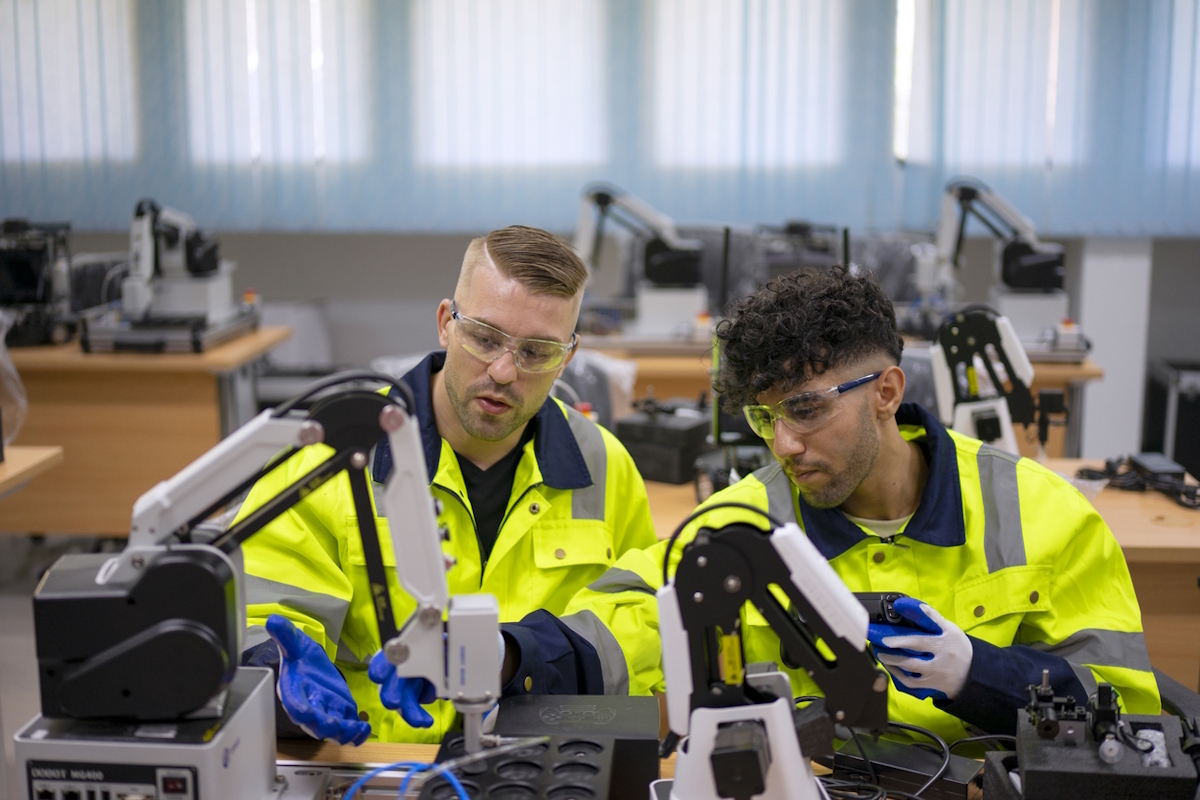Upskilling the UK for artificial intelligence

Dr Raoul-Gabriel Urma at Cambridge Spark argues that the UK’s AI future depends on cross-sector upskilling
The UK government has embraced AI with open arms, committing itself to 50 measures to develop and lay the foundations for the UK’s AI-powered future.
Now, more than ever, people are scrambling to get up to speed with this fast-developing technology. Firms are scratching their heads, puzzling over where and how GenAI fits into the equation of their corporation; employees, meanwhile, are stuck grappling with how and when to use AI.
The rapid development and adoption of AI have opened a gulf between those in the know and those less so. It’s exacerbated the already-existing digital divide and has underscored the UK’s desperate need to step up its digital skills if it wants to compete on the global stage in the AI era.
There’s a temptation, when it comes to digital skills, to zero in on how we can upskill and train businesses and employees who work in traditionally tech-driven industries, where the use cases for AI are a bit more obvious.
It’s easy to focus on encouraging digital transformation and AI adoption in large corporates and household-name firms – but by focusing on the obvious, we fail to consider how less tech-inclined industries and small-to-medium-sized enterprises (SMEs) will benefit from digital upskilling and the potential of AI.
I think our current approach to the impact of AI on business is all wrong. SMEs make up 99.8% of the business population in the UK.It’s high time we change track and shift our attention to the smaller players in the British economy.
The UK has high hopes for the AI era. Through the AI Opportunities Action Plan, the government says it aims to “mainline AI” into the country’s veins, banking on the tech’s productivity gains and automation capabilities to transform the national economy and labour market.
But to make this vision a reality, AI must be implemented and utilised to some degree throughout the entirety of the economy.
The UK’s AI aspirations can only be achieved if firms and organizations across all sectors of society and the economy engage with digital upskilling initiatives. And upskilling must begin with education – helping businesses throughout the country get to grips with the what and the why of AI, before helping firms get on board with upskilling initiatives for the whole company.
Ensuring upskilling initiatives are accessible will be vital in ensuring upskilling is achieved across all expanses of the economy. And particular support should be levelled to SMEs, who are currently the least likely to engage with AI.
Cross-sector, the pace of AI adoption in UK industries remains slow – and has even started to drop off in previous months (according to the Slack Workforce Index), with just 15% of businesses reporting that they use some form of AI, according to the Office for National Statistics (ONS). Large businesses, with 250+ employees, far outpaced smaller businesses when it came to AI adoption, with 30% saying they used AI in some capacity.
When asked by the ONS what was holding them back from adopting AI, the most cited answers were the level of expertise needed to use AI and difficulty identifying business use cases – highlighting the need for digital upskilling across the labour market.
The cruel irony of the digital skills gap is that the firms and industries with the lowest levels of AI adoption and understanding often stand to benefit the most from AI’s prospective benefits, namely productivity gains. Sectors like manufacturing, construction and logistics have the lowest uptake of AI applications, while the ONS research showed that SMEs maintain vastly lower rates of AI adoption than larger firms.
The figures are stark, and the solution is clear. AI adoption must be encouraged country-wide, and cross-sector AI upskilling and training are the key to achieving this. And it should begin with ensuring all businesses – regardless of industry or company size – are equipped with a thorough understanding of what AI can do for them.
Smaller firms and industries like manufacturing are less likely to engage with AI to begin with. Some aren’t sure how to implement the technology; others simply don’t think it will substantially benefit them. These concerns can be addressed through practical education focused on ROI.
Before sitting employees down and waxing on about how to use AI, cross-sector upskilling must start at the top of the pyramid with a why. Business leaders and executives must be shown how AI will benefit them and their workforce. Leaders need to be shown how AI will drive value for their business and its stakeholders with dedicated examples.
There’s a space here for companies already using AI to educate their industry peers on how it has benefited them, particularly in sectors where AI uptake is low. This way, companies can get a frank, real-life example of AI usage, including all of its pros and cons.
Specific, business leader-targeted AI training courses could serve as the perfect introduction to digital upskilling for many firms. Starting with business leaders is the best port of call, and allows their knowledge and understanding of AI to trickle down throughout the business.
Above all, an understanding of AI’s potential will hopefully feed into an enthusiasm for AI adoption – making the learning process that bit easier. A thorough understanding of how AI slots into their business will ensure that upskilling initiatives are precise and targeted, minimising the time spent training staff.
Ensuring digital skills initiatives are accessible is a crucial second step in cross-sector upskilling. If businesses don’t have the means or resources to upskill their workforce, AI uptake throughout the UK’s labour force will stagnate, leaving the country floundering in the shadow of more digitally advanced nations.
Particular support must be leveraged to SMEs, who are the least likely to have the time or funds to invest in digital skills training. The UK has already taken some steps towards accessibility in this regard through the government’s AI Upskilling Fund, which subsidises the cost of AI skills training for SMEs in the professional business services sector.
I would like to see the government take the fund one step further, broadening its horizons to span cross-sector. Ideally, support should span to industries that are least likely to engage with AI, ensuring they have the support and encouragement to upskill their workforce and reap the benefits of AI technology.
Generative AI is still in its infancy. As it develops and we continue to find new use cases, it may well be that more and more businesses throughout the labour market gravitate towards AI technology.
But in the meantime, we need to encourage AI adoption across the entire UK economy – and that means offering targeted support to the businesses and industries where AI adoption is lowest.
Dr Raoul-Gabriel Urma is founder and Chairman of Cambridge Spark
Main image courtesy of iStockPhoto.com and eyesfoto

Business Reporter Team
Most Viewed
Winston House, 3rd Floor, Units 306-309, 2-4 Dollis Park, London, N3 1HF
23-29 Hendon Lane, London, N3 1RT
020 8349 4363
© 2025, Lyonsdown Limited. Business Reporter® is a registered trademark of Lyonsdown Ltd. VAT registration number: 830519543





